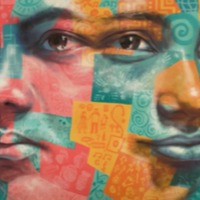
When I was a young girl, my family and I lived in the village and I attended school and enjoyed playing with my friends. When I was 10 years old my father became ill and unable to work, we could no longer afford to pay rent. This left us helpless and hopeless and forced us to move into the brickyard. I began to work making bricks with my parents, the burden of this was so very heavy. Waking up before dawn, half asleep, working in the early morning to try to avoid the burning sun. Then trying to sleep at night was also difficult because of pain and sickness. I felt we were being punished by poverty, slaves.
Life in the brickyards is hard and painful. When brickyard owners don’t pay enough wages after working so hard, people are hungry and angry and many fights happen between workers. Even when we went to get water for drinking and cooking, often we were blocked and threatened. The homes are not clean and do not have washrooms for families.
Before life in the brickyards, I loved to play with friends and study in school, but now school was impossible because I was compelled to work such hard and painful work, as it is with so many girls in the same situation.
At the beginning of 2014, I told my parents that I no longer wanted to work making bricks, that since I was their only daughter, they must think about my future. They agreed. Then, in June of that year, my mother noticed breast pain and on the way to the hospital she and my father had an accident on their motorcycle. My father was injured so badly he was not able to work and the test my mother received showed that she had a tumor and needed surgery. For a while, we didn’t take her condition seriously, though she was on medication. And my father could not work the same as he did before. We wanted to be free so we worked so hard.
My mother’s condition worsened, she was in so much pain and getting worse by the day. The doctors said she had breast cancer and needed surgery but working as slaves, we could not afford the treatment. In 2017 my father borrowed money from the brickyard owner for my mother's surgery, and we prayed every day for her healing. Her surgery was a success! Eventually my mother was able to start work again and my father could help bring us clay.
In May 2020, Brother Suleman with All People Free came to visit us and we told him about our circumstances. He made a way for us to leave the brickyard and live in Anna’s house. Now I have started studying again at Anna’s House and I’m learning to sew. Soon we will begin learning to sew Bible covers, ladies purses, and clutches. We feel that God has seen our pain and heard our prayers for freedom.
Narrative credited to All People Free
Original narrative can be found here









